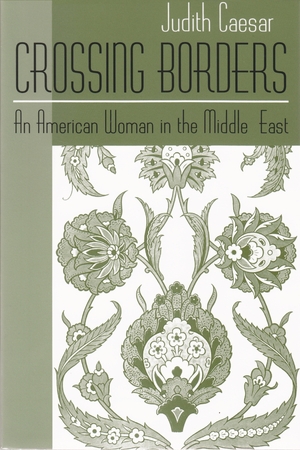"Crossing Borders is [Caesar's] account of how the people she met during three sojourns in the Middle East disabused her of this belief and helped her to new understandings. Caesar's reflections offer an antidote to prejudice against Arab culture."—MESA Bulletin
"Crossing Borders is an intriguing memoir. . . . Caesar finds herself living and working in the Arab Middle East during a period of great political and social turmoil. While there, she is forced to begin the long process of unlearning much of what she thought she knew about Arabs. . . . She learns to distinguish between legitimate criticism of the deeply conservative policies of the Saudi government and the kind of racist claptrap that passes for conventional wisdom among the crowd of expatriate Americans. . . . Caesar clearly enjoys and learns from her teaching, and her descriptions of her classes are often delightful."—The Womens Review of Books
Description
In the five years that Judith Caesar taught literature in Saudi Arabia and Egypt during the 1980s, key events took place that changed the face of Middle Eastern politics. Seen through the eyes of many Westerners, the assassination of Anwar Sadat, the Israeli invasion of Lebanon, and the Intifada were incidents reflective of a seemingly volatile and aggressive culture. But Caesar saw these events from another perspective. Part memoir and part travelogue, Crossing Borders conveys simply and eloquently the voices of the people and the cultures Caesar came to know during her time in the Arab world. Some of her writings in this book have first appeared in publications such as the Christian Science Monitor.
In the tradition of the best writings on foreign places, Caesar’s narrative is both an inward as well as an outward journey of discovery. In addition to the political reverberations taking place around her, she writes of the misconceptions generated by both the Saudi and the American press. In “All the News That’s Fit to Print”, Caesar notes wildly disparate interpretations of news stories when they are translated from one language to another. Caesar also demonstrates an openness in discovering the meaning inherent in the simplest daily tasks. She focuses on what is politically significant in what people do every day, such as drinking tea, shopping, and teaching.
Crossing Borders will appeal to people interested in a non-dogmatic description of the Middle East, and to those who love good travel writing.
About the Author
Judith Caesar is currently teaching English at the American University of Sharjah in the United Arab of Emirates. She is at work on her second book.
August 1999



